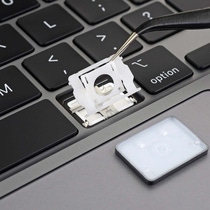Plastics & Rubber
K 2022: BASF launches suite of sustainable Ultraform® solutions
- Innovations that meet the demand for more sustainable Ultraform® products
- Biomass Balance Ultraform® BMB ensures the use of certified renewable resources in the production chain
- Low Product Carbon Footprint solution Ultraform® LowPCF
Singapore – October 13th, 2022 – On the occasion of K 2022, BASF launches two new sustainable product families: Ultraform® LowPCF (Low Product Carbon Footprint) and Ultraform® BMB (Biomass Balance). These solutions are designed to support the sustainability goals of BASF’s customers. Ultraform® is BASF’s trademark for its POM portfolio (POM: polyoxymethylene, also known as polyacetal).
Ultraform® LowPCF offers a Product Carbon Footprint which is at least 30 percent lower than the one of conventional Ultraform® grades by leveraging green electricity and an energy-efficient technology. Ultraform® BMB is ISCC+ Biomass Balance certified, ensuring the correct attribution of renewable raw material used in production: As vertically integrated supplier, BASF replaces fossil feedstock (e.g., natural gas) used in the early stage of the production chain with the equivalent quantity of certified renewable feedstock and allocates it specifically to Ultraform® BMB by means of the Mass Balance Approach (ISO 22095). In addition, this solution combines even more PCF reducing elements to enable a Product Carbon Footprint that is approximately 70 percent lower compared to conventional grades. Hence, Ultraform® BMB drives the use of renewable raw materials, saves fossil resources and distinctly supports the reduction of greenhouse gas (GHG) emissions.
“With the launch of the Ultraform® BMB and Ultraform® LowPCF product range we support our customers to reach their specific sustainability goals. Technical product performance remains key, but customers increasingly factor environmental impact into their decision criteria. Some customers prioritize the most efficient way to reduce the carbon footprint while others focus on the use of renewables which allows an even lower PCF. These products are part of our strategy to invest in innovations and sustainable solutions,” says Alexander Fas, Director Global Business Management Ultraform®.
BASF’s PCF calculations for conventional Ultraform®, BMB and LowPCF have been audited and verified by NSF International, an institution which is known for public health standards and certification programs.
For more information about the Ultraform® product range please visit : https://plastics-rubber.basf.com/northamerica/en/performance_polymers/products/ultraform.html
For additional information about BASF’s Performance Materials sustainability efforts and products, visit https://plastics-rubber.basf.com/asiapacific/en/performance_polymers/sustainability.html
About BASF’s Performance Materials division
BASF’s Performance Materials division encompasses the entire materials’ know-how of BASF regarding innovative, customized plastics under one roof. Globally active in four major industry sectors – transportation, construction, industrial applications, and consumer goods – the division has a strong portfolio of products and services combined with deep understanding of application-oriented system solutions. Key drivers of profitability and growth are our close collaboration with customers and a clear focus on solutions. Strong capabilities in R&D provide the basis to develop innovative products and applications. In 2019, the Performance Materials division achieved global sales of €6.06 bn. More information online: www.plastics.basf.com.
About BASF
At BASF, we create chemistry for a sustainable future. We combine economic success with environmental protection and social responsibility. More than 117,000 employees in the BASF Group work on contributing to the success of our customers in nearly all sectors and almost every country in the world. Our portfolio is organized into six segments: Chemicals, Materials, Industrial Solutions, Surface Technologies, Nutrition & Care and Agricultural Solutions. BASF generated sales of €59 billion in 2019. BASF shares are traded on the stock exchange in Frankfurt (BAS) and as American Depositary Receipts (BASFY) in the U.S. Further information at www.basf.com.
P-22-373

